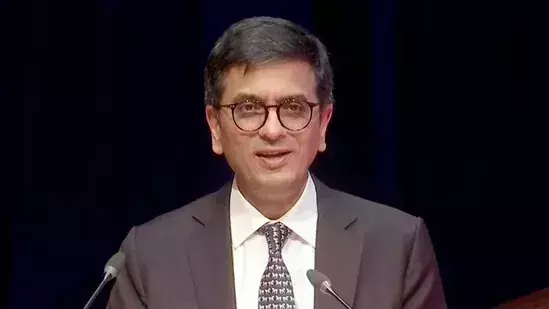TRENDING TAGS :
Bridging the Gap: CJI Chandrachud Advocates for Inclusive Legal Education in Remote Areas
Follow the journey towards a more inclusive legal profession and education system.
CJI Chandrachud Advocates for Inclusive Legal Education in Remote Areas
In a significant address at the inauguration of Dr Rajendra Prasad National Law University, Chief Justice of India, Justice DY Chandrachud, emphasized the need to extend legal education to remote rural areas. He stressed the importance of ensuring that students from small towns have equal opportunities to pursue a career in law.
**Introduction:**
Justice Chandrachud highlighted the impact of technology in reaching students in far-flung areas, expressing concern about the current legal education system favoring only English-speaking urban children. He cited a survey indicating that diversity in law universities is hindered by the language barrier, preventing students from diverse backgrounds from gaining admission.
**The Role of Technology:**
The Chief Justice applauded the Bhashini software, which has translated over 36,000 Supreme Court judgments from 1950 to 2024. This initiative aims to make legal decisions accessible to citizens who do not speak English and practice law in district courts. It reflects a commitment to inclusivity and broadening access to legal knowledge.
**Addressing Traditional Barriers:**
Chandrachud challenged the traditional design of moot courts, internships, and competitions, which often favor students from elite families. He urged law colleges and universities to reshape these opportunities to be more inclusive, catering to students from diverse backgrounds.
**Medium of Instruction:**
A significant aspect of the Chief Justice's address was the appeal for Hindi as the medium of instruction. Chandrachud believes that adopting Hindi as the language of instruction will pave the way for the best students from Uttar Pradesh to excel and become outstanding lawyers. This linguistic shift aims to remove language barriers that might impede the potential of students.
**Legal Profession and Nation-building:**
Drawing a historical perspective, Justice Chandrachud emphasized the crucial role lawyers have played in India's journey from the Independence movement to constitution-making and contemporary politics. He highlighted the multi-faceted contribution of lawyers, representing individuals and entities, ensuring rights protection, and advocating for various legal issues.
Justice DY Chandrachud's call for extending legal education to remote areas, embracing technology, and ensuring inclusivity sets a significant precedent. The push for Hindi as a medium of instruction aligns with the vision of providing equal opportunities for students across diverse backgrounds. It is a step towards democratizing legal education and fostering a more inclusive legal profession.



